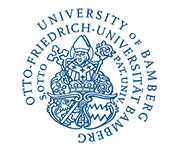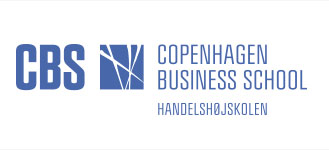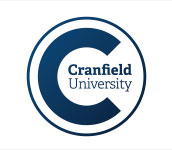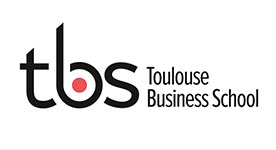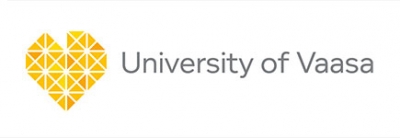GLOMO sub-projects and Early Stage Researchers (ESRs)
All individual projects will have a duration of 36 months (09/2018 – 08/2021) and are empirical projects.
Work Package 1: Micro – Creating expatriates’ individual resources and capacities
Creating motivation (Host: University of Bamberg)
ESR 1 will be concerned with the examination of reasons behind individual willingness to move internationally.
Prof. Dr. Maike Andresen (University of Bamberg, DE)
Prof. Dr. Mette Zølner (Copenhagen Business School, DK)
The objective of this project is to examine the primary reasons for individual willingness to move internationally. The project will address two types of international mobility:
a) organisational international mobility assignments,
b) self-initiated individual international mobility.
With regards to the organisational international mobility assignments (expatriation), the project will address: Why employees accept international mobility assignments? Which factors predict their intention to move internationally? How do they perceive value of international assignments for their career? With regards to the self-initiated international mobility, the project will address: What are the motives behind individual self-initiated international mobility? Which expectations do self-initiated global workers have from their international mobility in terms of acquisition of career capital, life style, and career plans?
The project aims to develop a framework of antecedents and motivational mechanisms of individual willingness to move internationally. The data will be collected through an international survey in the countries participating in GLOMO.
- Develop a holistic perspective on individual motivation for expatriation, thereby considering both the acceptance of the organizational international mobility assignments and self-initiated expatriation
- Advance knowledge about individual and organizational motives and mechanisms underlying individual willingness to move internationally
- Provide organisations with knowledge and starting points for developing relevant policies and practices based on the findings about motivation for expatriation from an individual and organisational perspectives.
Creating career capital and employability: Self-Initiated repatriation, from ‘over the moon’ to the ‘dark side of the moon’ (Host: Cranfield University)
ESR 2 will be concerned with individuals’ perception of career capital impact, career patterns and work-life satisfaction as well as self-initiated repatriates’ identity, their career-relevant networks and their use of (foreign-acquired) career capital.
Prof. Dr. Michael Dickmann (Cranfield University, UK),
Prof. Dr. Maike Andresen (University of Bamberg, DE)
To map career experiences of different types of SIRs after their work abroad in order to:
- Explore the individuals’ perception of career capital impact, career patterns and work-life satisfaction upon return
- Assess changes to SIRs’ identity, their career-relevant networks and their use of (foreign acquired) career capital upon return
- Investigate organisational perceptions of the value of self-initiated expatriation and repatriate work
- Identify the ‘darker’ sides of SIRs’ careers
- Develop recommendations for strategies to avoid, cope or overcome negative career effects associated with self-initiated expatriation and repatriation.
While the research explores primarily micro-level (i.e. individual-level) issues, its objectives are geared to a broader contribution. Specifically, it aims to:
- Refine and extend modern career theories in relation to international mobility
- Aid individuals in their understanding, planning and enacting of global mobility; especially in terms of how to avoid the negative effects on careers and how to improve the utilisation of the positive aspects of working abroad
- Support organisations to identify and avoid career management policies and practices that may lead to ‘darker’ career experiences of SIRs and, instead, help them to formulate approaches that allow better outcomes for both employers and employees
- Inform governmental and EU policy formulation and implementation in the area of international worker mobility.
ESR3
Creating well-being among employees on international assignments (Host: University of Vaasa)
ESR 3 will examine ill-health and motivational processes among expatriates and their impact on performance as well as the role of work-life conflict (WLC) and enrichment (WLE) among expatriates.
Prof. Dr. Liisa Mäkelä (University of Vaasa, FI),
Prof. Dr. Maike Andresen (University of Bamberg, DE)
- Examine work well-being and work-family interface of expatriates and related determinants and outcomes
- Examine ill-health and motivational processes among expatriates based on JobDemands Resources Model, i.e. high job demands leading to ill-health and poor performance and job resources leading to motivational process and high performance
- Examine the role of work-life conflict (WLC) and enrichment (WLE) in the ill-health and motivational processes among expatriates.
- Systematic literature review about expatriates’ well-being
- Better understanding of expatriate well-being and performance and related determinants through empirical studies
- Provision of empirical evidence into the development of WLC and WLE and their links to performance
- Testing and developing of JD-R model in the context of expatriation
- Conclusions for expatriates and their families, and for organisations’ employing expatriates to ensure expatriates’ well-being and performance.
Creating career success: Long-term career impacts of different types of international work experiences (Host: University of Vaasa)
ESR 4 will analyse the longer-term career impacts of international work experiences among different types of international professionals, the development during international work experiences using career capital theory as well as their impacts on future career choices.
Prof. Dr. Vesa Suutari (University of Vaasa, FI),
Prof. Dr. Michael Dickmann (Cranfield University, UK)
- Analyse the factors explaining the level of development of assignees during international work experiences using career capital theory. This intelligent careers approach identifies three aspects of career capital: knowing why, knowing how and knowing whom
- Analyse the impact of international experiences on career success of international professionals and explore their future career choices.
- Better understanding of the developmental and career experiences of international professionals and managers during their international work
- New insights on the impact that the international work experiences have on the careers of assignees having different kinds of international jobs and careers.
ESR5
Creating identity: A narrative approach (Host: Copenhagen Business School)
ESR 5 will explore identity construction and sense-making processes of internationally mobile employees within organizational and institutional settings.
Prof. Dr. Mette Zølner (Copenhagen Business School, DK),
Prof. Dr. Silke Anger (Institute for Employment Research, DE)
- Analyzing implications of international, physical mobility on individual narratives and identity construction
- Exploring intersubjective, context specific sense-making processes of international employees when crossing cultural and linguistic boundaries
- A theoretical model to analyze identity construction of internationally mobile employees
- Insights on employees’ perspectives, possibly to be leveraged for International Human Resources Management
Work Package 2: Meso – Managing organisational structures influencing international careers and mobility
ESR6
Managing and recognizing social capital (Host: University of Vaasa)
ESR 6 will develop a theory of internationals’ social capital investigating the diversity of weak ties, applying a cross-cultural perspective on the ties’ strength, and a cross-cultural perspective on the function and value of social capital (original contribution) within organisations.
Prof. Dr. Vesa Suutari (University of Vaasa, FI)
Prof. Dr. Liisa Mäkelä (University of Vaasa, FI)
The primary objective of this project is to develop a theory of internationals’ social capital. It concerns both the diversity of ties formed by internationals through their international assignments, and the ties’ applicable and useful for development of:
a) internationals’ individual careers and well-being (i.e., intention to stay), as well as
b) organisational capabilities and outcomes (i.e., organisational performance).
Moreover, the project aims to develop a methodology that would allow extrapolation of a potential value of internationals’ social capital for individuals and their employability, and for organisations, from internationals’ CVs.
- A theory-building paper and a number of empirical papers on the internationals’ social capital and its implications for:
- individual careers and
- organisational outcomes
- Knowledge for individuals that will allow them to interpret their individual social capital and its effects on their career success
- Knowledge for organisations that will allow them to interpret expatriates’ social capital captured in their prior experiences (and CVs) and its effects on organisational performance.
ESR7
Managing global compensation and rewards (Industrial PhD in a multinational company)
ESR 7 will develop an understanding of the importance of the various logics of personnel administration and pay roll systems in various European countries and cultural context configurations with the use of SAP. Contrasting patterns of influences and development of mobility barriers due to payroll system differences in Europe and beyond will be compared, leading to a conceptualization of a possible European harmonisation of SAP payroll systems in order to facilitate European and global mobility, transnational leaves as well as European mindset development for supportive accounting practice.
Prof. Dr. Cordula Barzantny (Toulouse Business School, FR),
- Understand the various logics of compensation and benefits within the various European countries.
- Compare contrasting patterns of influences and development of mobility barriers due to compensation system differences in Europe and beyond (analysis of local compensation and benefits in various European countries, data mapping and tracing of local tax and social practices and their impact on mobility barriers).
- Conceptualise a possible European/global harmonisation of compensation and benefits systems in order to facilitate European and global mobility.
- Develop theory regarding a harmonised compensation and benefits system to foster global mind set in the European qualified labour mobility context
- Elaborate innovative solutions for developing a consistent compensation and benefits approach system across at least four European countries for mobility purposes and beyond if possible
- Help organisations and institutions to manage and ultimately attract and retain expatriates and international leaves
- Knowledge and best practice on trans-European accounting practice
ESR8
Managing diversity in careers: A comparative study of Self-Initiated Expatriation and Local-Plus Expatriation as an organisational practice (Host: Toulouse Business School)
ESR 8 will develop an understanding of the dynamics of self-initiated expatriates (SIE) and local-plus expatriates as an organisational practice by comparing different SIE groups in terms of their career capital accumulation and possible corporate use of such a diversity.
Prof. Dr. Akram Al-Ariss (Toulouse Business School, FR),
Prof. Dr. Thomas Saalfeld (University of Bamberg, DE)
- Understand the dynamics of SIE and local-plus expatriates as an organisational practice
- Compare organisational SIEs, local-plus expatriates, and traditional expatriates in terms of their career capital accumulation and possible corporate use
- Determine, from a strategic HR perspective, and comparing SIE’s to local-plus expatriates, how companies can better use SIEs in their internationalisation policies
- Develop recommendations for innovative HR practices regarding new forms of expatriate mobility, e.g. SIE.
- Develop theory regarding Self-Initiated Expatriation
- Help organisations to identify, attract, recruit, integrate, manage, and ultimately retain SIEs and improve the overall management of expatriate mobility through innovative solutions
- Elaborate good HR fit of global expatriate mobility with successful talent management.
Managing retention via job embeddedness (Host: University of Bamberg)
ESR 9 will investigate determinants why foreign employees leave a host country and why they stay abroad.
Prof. Dr. Maike Andresen (University of Bamberg, DE),
Prof. Dr. Michael Dickmann (Cranfield University, UK)
The objective of this research project is to investigate factors at the individual, organisational and institutional level that explain why foreign employees stay in their country of residence permanently or intend to stop their career abroad and leave this country. In order to understand individuals’ decision-making process, a focus shall be placed, among others, on expatriates’ international relocation mobility willingness and its antecedents (including expatriates’ occupational, organisational and community embeddedness and adjustment over time) as well as on individuals’ differences in career definitions between countries and their implications for the retention of foreign employees.
As this project’s focus is on the organisational perspective, implications for Human Resource Management shall be derived. In this vein, human resource managers (recruiters), supervisors and foreign employees working in different European countries shall be surveyed with the aim to identify, compare, analyse and evaluate organisational good practices and prerequisites to retain foreign employees.
- Systematic literature review about factors determining expatriates’ intention to stay in their current country of residence and organisational practises that serve to retain foreign employees.
- Development of empirically-based models explaining individuals’ decision-making regarding their stay in the foreign country of residence and organisations’ motives, goals and management approaches regarding retention of foreign employees.
- Conclusions for organisations regarding retention of foreign employees and approaches to influence foreign employees’ decision-making process (including both human resource management practices and community policies, city marketing, immigration and integration policies in the EU Common Market).
Managing language perspectives on an international career: A study in MNCs with English as corporate language (Host: Copenhagen Business School)
ESR 10 will analyse and identify the challenges different kinds of international assignees encounter regarding sense making and language in an unfamiliar organisational context.
Prof. Dr. Mette Zølner (CBS, DK),
Prof. Herbert Brücker (Institute for Employment Research (IAB, Germany)
- The objective of the project is to comprehend how language practices within organisations influence the career of international assignees
- The project will investigate which practices companies apply to cope with language barriers (i.e. language brokers, language switching) and then analyse implications for HR practices and power distribution within organisations. To this organisational perspective, the project will add an individual perspective in order to explore how individual employees perceive such practices and adopt strategies for coping with these, and perhaps turn these into career opportunities
- The complementary perspective (meso and micro) calls for a case-study methodology as this allows for in-depth qualitative studies of phenomena within a particular societal and implications context
- Empirically, the project will focus on organisations in which language barriers are the least expected, namely in MNCs with English as corporate language. In addition, particular groups of mobile employees will be identified according to a) their language competences (i.e. native English speaking and others); b) their professions, functions (i.e. engineers and corporate staff functions) and c) positions in the hierarchy (employees with and without managerial responsibility).
- Systematic literature review on how a common corporate language influences HR practices, careers, collaboration and power distribution in MNCs
- Development of an analytical model for comprehending language practices and strategies in multilingual MNCs
- Conclusions on language designs in MNCs of use for HR practices in organisations.
Work Package 3: Macro – Implications of societal factors and systems affecting international careers and mobility
ESR11
Implications of national hostility (Host: Cranfield University)
ESR 11 will explore different forms and degrees of hostile environments in various contexts, including high levels of migration, degrees of threat and insecurity.
Prof. Dr. Michael Dickmann (Cranfield University, UK),
Prof. Dr. Vesa Suutari (University of Vaasa, FIN)
To investigate societal factors and systems that may be seen as hostility in the context of global work in order to:
- Explore different forms and degrees of hostile environments in various contexts, including high levels of migration, degrees of threat and insecurity
- Investigate individual (re-)actions to cope with various facets of hostile environments, including activities to identify, manage and minimise threats and effects on careers
- Assess organisational approaches to international work in hostile environments
- Develop insights and recommendations for individuals, organisations and society.
While the research explores primarily macro-level issues, its objectives are geared to a broader contribution. Specifically, it aims to:
- Develop insights in relation to working in hostile environments. This is likely to include the exploration of the sources of hostility, the identification of critical incidents impacting on individuals and organisations as well as the exploration of alternative forms of work
- Support individuals in their understanding and resolutions of tensions and paradoxes that emerge as a result of working in hostile and/or unfriendly environments
- Assist organisations to develop global career management design principles to support the individuals who undertake their international work in a hostile context.
ESR12
Implications of educational system: The Bologna process and global mobility of human capital (Host: Institute for Employment Research)
ESR 12 will investigate whether the Bologna process (European Higher Education Area) has contributed to an increase in global mobility of both human capital and human capital investments and will examine whether the adaptation of university systems within Europe has led to higher mobility of students.
Prof. Dr. Silke Anger (Institute for Employment Research, DE),
Prof. Dr. Mette Zølner (CBS, DK)
The project investigates whether the European Higher Education Area (Bologna process) has contributed to an increase in global mobility of both human capital and human capital investments. In particular, the aim is to:
- examine whether the adaptation of education systems within Europe has increased global student mobility
- analyse whether reforms in the European Higher Education Area have facilitated the employability of workers with foreign degrees
- explore whether returns to training acquired abroad have increased following the educational reforms that improved the comparability in higher education qualifications.
The project links individual micro-level data with macro-level data on institutional settings, and is expected to deliver both theoretical and empirical results:
- Extension of the human capital model with different types of human capital investments in relation to their international transferability
- Empirical evidence on the effects of educational institutions on global student mobility, on the recognition of international training, and on labour market performance of workers with foreign educational degrees
- Active participation at policy workshops at national and EU level to present evidence on determinants of international student mobility and labour market success of global workers
- Provide evidence-based policy advice on education and integration policies to governments and public employment services in the EU Common Market.
ESR13
Implications of gender-specific policies (Host: Institute for Employment Research)
ESR 13 will investigate the gender-specific determinants of migrants’ human capital investments in host and sending countries and the causes of the differences in labour market performance and career patterns between female and male migrants in detail (participation, unemployment, wages).
Prof. Dr. Herbert Brücker (Institute for Employment Research, DE),
Prof. Dr. Cordula Barzantny (Toulouse Business School, FR)
- Investigate the gender-specific determinants of migrants’ human capital investments in host and sending countries and the causes of the differences in labour market performance and career patterns between female and male migrants in detail (participation, unemployment, wages)
- Explore possible institutional explanations for observed gender differences, such as tax systems, childcare, company related policies etc. which affect intra-partnership or intra-family bargaining on migration decisions and subsequent career patterns
- Evaluate data based on the new IAB-SOEP migration sample (panel data covering the entire migration-, education- and employment biography of migrants) that allows identifying tied movers, and data from qualitative interviews (mixed-method approach).
- Development of a partnership or family bargaining model and empirical analysis of the institutional, economic and social determinants of different career patterns of female and male migrants (firm, job and occupational mobility, labour market participation, job and occupational status and remuneration)
- Conclusions for family policies (e.g. childcare) and related policies (e.g. tax policies), for recruitment and job placement policies and on-the-job-training policies of firms, the public sector and public employment services, conclusions for education and related policies (e.g. acknowledgment of degrees of the public sector and firms) and for immigration and integration policies in the EU Common Market.
ESR14
Career value of international work experience of migrants and expatriates in the information technology industry in Germany (Host: University of Bamberg)
ESR 14 will determine the career norms of selected career (sub-)fields that determine (a) their employability and (re-)entry success of internationally mobile employees and (b) their subsequent career development in organisations.
Prof. Dr. Maike Andresen (University of Bamberg, DE)
Prof. Dr. Vesa Suutari (University of Vaasa, FI)
Determine the career norms of selected career (sub-)fields that determine (a) their employability and (re-)entry success of internationally mobile employees and (b) their subsequent career development in organisations.
- Literature review and empirical analysis of determinants of and barriers to career opportunities, patterns and success of foreign employees in MNCs (i.e. organisational acknowledgment, valuation and utilisation of international experience);
- Advice for organisations reg. the design of a demand-driven recruitment strategy, selection, development, leadership of foreign employees, for job placement services by e.g. headhunters, employment agencies.
ESR15
Implications of political systems (Host: University of Bamberg)
ESR 15 will examine the extent to which macro-level tendencies towards the professionalisation of political campaigning in European democracies affect the chances of candidates of immigrant origin to get nominated by political parties and elected by voters and affect collective sense making. By doing so, the extent to which general tendencies towards the professionalisation of politics as a ‘career’ affects the recruitment and career opportunities of first-generation immigrants in the politics of European democracies will be analysed.
Prof. Dr. Thomas Saalfeld (University of Bamberg, DE),
- Establish a reliable database for the assessment of cross-national and cross-party recruitment of first-generation immigrants in Germany, The Netherlands and the UK for elected office in the European, national and (where appropriate) regional legislatures
- Examine the extent to which the professionalisation of political careers create, or remove, barriers towards the recruitment of first-generation immigrants to high legislative and executive office
- Assess the nature and effectiveness of party-specific measures to promote ethnic diversity and address questions of underrepresentation and integration in leadership recruitment
- Assess the role of public funding for highly-qualified research staff in the public sector and NGOs in creating a new ‘pre-political career structure’ that affects diversity in political recruitment
- Assess the extent to which cross-level governing in the European Union (local, regional, national, EU levels) creates new international career structures
- Assess the importance of immigrant-origin ‘role models’ and champions for diversity in political leadership recruitment.
- Addressing descriptive gaps in the literature on selection of immigrant-origin candidates for political leadership positions in selected European parties and development of methodological tools to extend the analysis to other social groups and countries
- Fundamental empirical contribution to the nature and effects of organisational reforms in political parties aiming to increase diversity in the face of declining memberships, party identification and trust in parties and legislatures
- Contribution to theoretical models on candidate selection focusing on the incentives and risks of recruiting immigrant-origin candidates
- Contribution of Europeanisation and cross-level governing to the integration of immigrants in the democratic process.

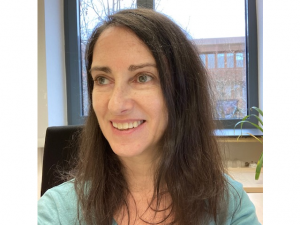
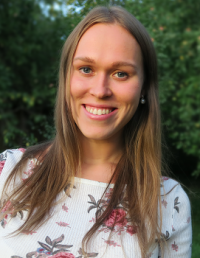 Emilija Oleskeviciute holds an MSc in Work and Organizational Psychology from Maastricht University, BSc in Psychology from Mykolas Romeris University, and has participated in ERASMUS+ exchange study program at Masaryk University. She has written master thesis on the topic of sustainable employability. Emilija has also worked as an intern for the personnel division at the Bank of Lithuania, and as a research intern at Maastricht University. She has studied in her native Lithuania, Czech Republic, and the Netherlands. She speaks English, Lithuanian, Polish, and Russian fluently. She also has a basic knowledge of Spanish and Dutch.
Emilija Oleskeviciute holds an MSc in Work and Organizational Psychology from Maastricht University, BSc in Psychology from Mykolas Romeris University, and has participated in ERASMUS+ exchange study program at Masaryk University. She has written master thesis on the topic of sustainable employability. Emilija has also worked as an intern for the personnel division at the Bank of Lithuania, and as a research intern at Maastricht University. She has studied in her native Lithuania, Czech Republic, and the Netherlands. She speaks English, Lithuanian, Polish, and Russian fluently. She also has a basic knowledge of Spanish and Dutch. Tania is a doctoral student at the School of Management, University of Vaasa, FI. She works as a project researcher in the ESR 3 group under the Global Mobility initiative. Her doctoral research is jointly supervised by Dr. Liisa Makela (University of Vaasa) and Dr. Maike Andresen (University of Bamberg).
Tania is a doctoral student at the School of Management, University of Vaasa, FI. She works as a project researcher in the ESR 3 group under the Global Mobility initiative. Her doctoral research is jointly supervised by Dr. Liisa Makela (University of Vaasa) and Dr. Maike Andresen (University of Bamberg).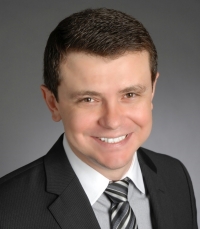 Prior to joining GLOMO, Rodrigo Mello was a Lecturer of International Human Resource Management (IHRM) and member of the Center for Advanced Sustainable Management (CASM) at Cologne Business School (CBS). He possesses significant international experience into cross-culture interactions. He earned his MBA in 2007 at the Fundacão Getúlio Vargas (FGV) in Rio de Janeiro and an MA in 2014 at Cologne Business School (CBS) – Cologne. He has professional experience in well-known multinational corporations such as Anheuser-Busch InBev (Brazil) and Lanxess (Germany).
Prior to joining GLOMO, Rodrigo Mello was a Lecturer of International Human Resource Management (IHRM) and member of the Center for Advanced Sustainable Management (CASM) at Cologne Business School (CBS). He possesses significant international experience into cross-culture interactions. He earned his MBA in 2007 at the Fundacão Getúlio Vargas (FGV) in Rio de Janeiro and an MA in 2014 at Cologne Business School (CBS) – Cologne. He has professional experience in well-known multinational corporations such as Anheuser-Busch InBev (Brazil) and Lanxess (Germany).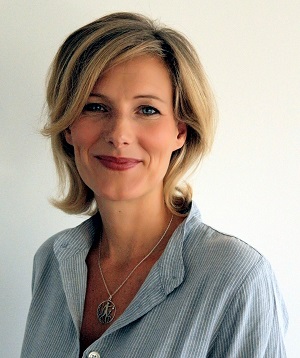 Kerstin Martel holds a Master’s degree in Intercultural Management from Paris Dauphine University in France, a Master of Arts in International Business from Rennes Business School in France and a Diplom-Betriebswirt from the Bochum University of Applied Sciences in Germany. She has worked as a management consultant for private and public sector organisations in Europe and the USA and she has taught Intercultural Management at Business Schools and Universities in France. As an independent researcher she contributed to international conferences such as the Critical Management Studies Conference (CMSC), the International Association of Cross-Cultural Competence and Management (IACCM) and the Society for Intercultural Education, Training and Research (SIETAR).
Kerstin Martel holds a Master’s degree in Intercultural Management from Paris Dauphine University in France, a Master of Arts in International Business from Rennes Business School in France and a Diplom-Betriebswirt from the Bochum University of Applied Sciences in Germany. She has worked as a management consultant for private and public sector organisations in Europe and the USA and she has taught Intercultural Management at Business Schools and Universities in France. As an independent researcher she contributed to international conferences such as the Critical Management Studies Conference (CMSC), the International Association of Cross-Cultural Competence and Management (IACCM) and the Society for Intercultural Education, Training and Research (SIETAR).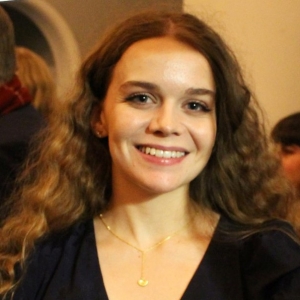 nés Escobar Borruel holds a bachelor’s degree in Translation and Interpreting from the Autonomous University of Madrid and an MSc in International Development from the University of Edinburgh. While completing the latter, she joined a faculty research project on Venezuelan labor migration, and submitted a fieldwork-based dissertation that uncovered the remittance behaviors and transnational social capital strategies of the growing Venezuelan diaspora in Madrid, Spain.
nés Escobar Borruel holds a bachelor’s degree in Translation and Interpreting from the Autonomous University of Madrid and an MSc in International Development from the University of Edinburgh. While completing the latter, she joined a faculty research project on Venezuelan labor migration, and submitted a fieldwork-based dissertation that uncovered the remittance behaviors and transnational social capital strategies of the growing Venezuelan diaspora in Madrid, Spain.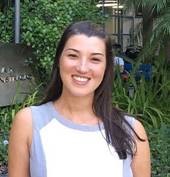 Giovanna Milani is a Brazilian/Italian researcher with a Bachelor of Social Communications and a master’s degree in Business Administration. Her interest in the Human Resources field emerged as a way to combine her skills in communication and management. During 2010-2016, she undertook several graduate courses on Corporate Education, Business Pedagogy and Human Resources Management and Development. She has work experience in the industry (having worked in Brazil, Italy and England) and in the academy, teaching courses on People Management and Communication. She is currently a PhD student in the Toulouse School of Management in France.
Giovanna Milani is a Brazilian/Italian researcher with a Bachelor of Social Communications and a master’s degree in Business Administration. Her interest in the Human Resources field emerged as a way to combine her skills in communication and management. During 2010-2016, she undertook several graduate courses on Corporate Education, Business Pedagogy and Human Resources Management and Development. She has work experience in the industry (having worked in Brazil, Italy and England) and in the academy, teaching courses on People Management and Communication. She is currently a PhD student in the Toulouse School of Management in France. Acil Abdul Hadi is a French & Lebanese candidate who graduated with a Bachelor in Psychology from the American University of Beirut and a Masters in Management from ESCP Europe – Paris campus. Acil has shown interest in Human Resources very early on in her career, working in a recruitment agency where she got exposed to the needs of multiple companies across the Middle East Region while pursuing her Professional in Human Resource Management Certification. Passionate about research in Human Resources, Acil has joined the Suliman S. Olayan School of Business at the American University of Beirut as a Research Assistant working on topics such as career success, career patterns, work-life balance, talent management and women employment in the Middle East. Acil worked on several research papers and conference proposals where she got exposed to all the aspects of research ranging from literature reviews, to research designs, institutional review boards and data analysis.
Acil Abdul Hadi is a French & Lebanese candidate who graduated with a Bachelor in Psychology from the American University of Beirut and a Masters in Management from ESCP Europe – Paris campus. Acil has shown interest in Human Resources very early on in her career, working in a recruitment agency where she got exposed to the needs of multiple companies across the Middle East Region while pursuing her Professional in Human Resource Management Certification. Passionate about research in Human Resources, Acil has joined the Suliman S. Olayan School of Business at the American University of Beirut as a Research Assistant working on topics such as career success, career patterns, work-life balance, talent management and women employment in the Middle East. Acil worked on several research papers and conference proposals where she got exposed to all the aspects of research ranging from literature reviews, to research designs, institutional review boards and data analysis. Anh Nguyen holds a Master degree in Social and Organizational Psychology. She is now an Early Stage Researcher at the Faculty of Social Sciences, Economics, and Business Administration, University of Bamberg, Germany. Before taking this academic position, she has worked as an HR professional in Vietnam and The Netherlands that provides her with a close observation on practical issues of personnel management and global labor mobility.
Anh Nguyen holds a Master degree in Social and Organizational Psychology. She is now an Early Stage Researcher at the Faculty of Social Sciences, Economics, and Business Administration, University of Bamberg, Germany. Before taking this academic position, she has worked as an HR professional in Vietnam and The Netherlands that provides her with a close observation on practical issues of personnel management and global labor mobility. Ivan Olav Vulchanov is an Early Stage Researcher under project no. 10 “Managing language perspectives on an international career: A study in MNCs with English as corporate language” at Copenhagen Business School, Denmark. He holds an MSc in Globalisation, Politics and Culture and a BA in European Studies and Foreign Languages from the Norwegian University of Science and Technology in Trondheim, Norway.
Ivan Olav Vulchanov is an Early Stage Researcher under project no. 10 “Managing language perspectives on an international career: A study in MNCs with English as corporate language” at Copenhagen Business School, Denmark. He holds an MSc in Globalisation, Politics and Culture and a BA in European Studies and Foreign Languages from the Norwegian University of Science and Technology in Trondheim, Norway. Monique Raupp is a research fellow and PhD student at the Cranfield University, under the supervision of Prof. Dr. Michael Dickmann. She has an undergraduate degree in business at the State University of Santa Catarina (UDESC) and a master’s degree in management at the Federal University of Rio Grande do Sul (UFRGS), both in Brazil. She has already studied abroad for a semester in France, at the ESC Clermont, during her undergraduate program, as well as spent the summer of 2015 at the Economics department of the Harvard University, participating of the International Big Data Project (IBDP), under the supervision of Prof. Dr. Richard B. Freeman. Monique has participated on several academic conferences throughout the past years, both in Brazil and abroad, presenting academic papers and posters about her topics of interest. She has also published papers both in national and international journals.
Monique Raupp is a research fellow and PhD student at the Cranfield University, under the supervision of Prof. Dr. Michael Dickmann. She has an undergraduate degree in business at the State University of Santa Catarina (UDESC) and a master’s degree in management at the Federal University of Rio Grande do Sul (UFRGS), both in Brazil. She has already studied abroad for a semester in France, at the ESC Clermont, during her undergraduate program, as well as spent the summer of 2015 at the Economics department of the Harvard University, participating of the International Big Data Project (IBDP), under the supervision of Prof. Dr. Richard B. Freeman. Monique has participated on several academic conferences throughout the past years, both in Brazil and abroad, presenting academic papers and posters about her topics of interest. She has also published papers both in national and international journals.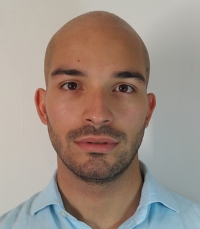 Jacopo Bassetto is currently a PhD candidate at the University of Trento and Early Stage Researcher within the GLOMO project. He has a BA in economics at Bocconi University, and a MA in statistics applied to the social sciences from the University of Trento. His main research interests are in the fields of labor economics, economics of education and economics of migration. His recent research has focused on expected and real returns to education, and the transition from school to the labor market. Currently he is working on the returns to the portability of migrants’ human capital.
Jacopo Bassetto is currently a PhD candidate at the University of Trento and Early Stage Researcher within the GLOMO project. He has a BA in economics at Bocconi University, and a MA in statistics applied to the social sciences from the University of Trento. His main research interests are in the fields of labor economics, economics of education and economics of migration. His recent research has focused on expected and real returns to education, and the transition from school to the labor market. Currently he is working on the returns to the portability of migrants’ human capital. Teresa Freitas Monteiro holds a MSc in Applied Econometrics and Forecasting from the University of Lisbon, a MSc in Economics from Tilburg University and a BSc in Economics from Nova School of Business and Economics. Prior to joining GLOMO, she worked as a Research Assistant at the Economic and Social Research Institute (ESRI) in Ireland; as a trainee in the Economics Department of the European Investment Bank in Luxembourg; as a Research Analyst in McKinsey & Company in Costa Rica and as a Microprudential Supervisor in the Portuguese Central Bank. Her research interests cover social and income mobility, inequality, housing affordability, labor and migration.
Teresa Freitas Monteiro holds a MSc in Applied Econometrics and Forecasting from the University of Lisbon, a MSc in Economics from Tilburg University and a BSc in Economics from Nova School of Business and Economics. Prior to joining GLOMO, she worked as a Research Assistant at the Economic and Social Research Institute (ESRI) in Ireland; as a trainee in the Economics Department of the European Investment Bank in Luxembourg; as a Research Analyst in McKinsey & Company in Costa Rica and as a Microprudential Supervisor in the Portuguese Central Bank. Her research interests cover social and income mobility, inequality, housing affordability, labor and migration.
 Monika Bozhinoska Lazarova graduated in Psychology from the University of SS Cyril and Methodius – Skopje. She continued her education with Master Studies in Political Science (Research Methods) at the University of Birmingham as a holder of the Chevening scholarship. Monika has several years of work experience as a researcher, covering issues in civic engagement, political participation and civil society. Her research interests are global mobility, political behaviour, representation of citizens of immigrant origin.
Monika Bozhinoska Lazarova graduated in Psychology from the University of SS Cyril and Methodius – Skopje. She continued her education with Master Studies in Political Science (Research Methods) at the University of Birmingham as a holder of the Chevening scholarship. Monika has several years of work experience as a researcher, covering issues in civic engagement, political participation and civil society. Her research interests are global mobility, political behaviour, representation of citizens of immigrant origin.